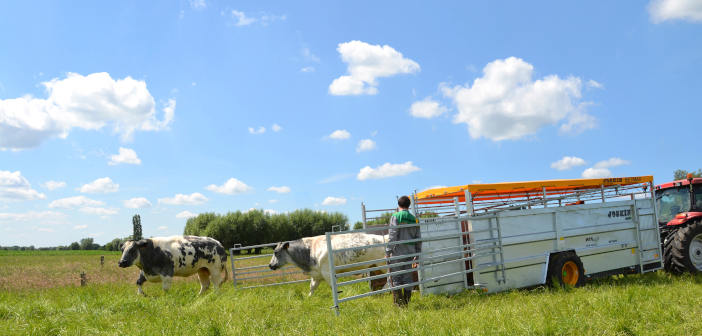Responding to Defra’s Welfare in Transportation consultation, the NFU has stressed the significant impact the proposals would have on the livestock and poultry sectors while failing to deliver any meaningful benefit to animal welfare.
The response states that, in order to ensure the best possible welfare outcomes, the main priorities should be the animal’s fitness to travel, loading and unloading and driver training and experience, rather than the length of the journey or the external temperature at the time of transport.
It believes that the current regulations for domestic transport are sufficient to deliver high welfare but that more focus from the government and industry needs to be placed on certified training, providing clearer sector-specific guidance and improving enforcement of the current rules.
NFU deputy president Stuart Roberts said: “Maintaining high welfare through transport is absolutely crucial and every single farmer wants to ensure their livestock arrive at their destination in good health.
“Transporting livestock and poultry is an integral part of UK food production. The suggested changes to journeys based on duration and weather conditions would cause serious delays and disruption, potentially damaging welfare outcomes, while changes to vehicle requirements would add significant costs and lead to many more journeys being made, increasing greenhouse gas emissions which work against both farming’s and the government’s net zero targets. These are serious issues, especially when no evidence has been provided to suggest they would actually benefit animal welfare.
“Defra has been unable to provide a sufficient financial impact assessment on what its proposals would mean for the industry and due to the timescale of the consultation has limited our own economic analysis.
“To underpin the industry’s own aim of delivering high animal welfare we believe improvements could be made by providing clearer guidance, as well as better regulator enforcement, on the areas that do make a difference to welfare – loading and unloading vehicles, animals’ fitness to travel and driver training.
“When it comes to live exports, greater consideration should be given to the proposed NFU assurance scheme which would be extremely effective in delivering welfare outcomes at the same time as maintaining this trade, as assessing the animals’ health and reporting back to producers is a fundamental part of the scheme.
“With any policy developments Defra makes, it is absolutely crucial they are based on the latest evidence, have industry involvement and take into account our self-sufficiency, productivity and sustainability ambitions.”
Key points in the response
In its response to Defra, the NFU highlighted several points:
- The best way to ensure high animal welfare during export would be an assurance scheme which all exporters comply with. The NFU has developed such a scheme and is keen to engage with Defra on this proposal.
- Time spent in a market or collection centre where animals get to rest should be considered as neutral time and not contribute to journey times. A recent NFU survey showed that 80% of beef, dairy and sheep farmers use livestock markets or collection centres, with animals spending, on average, five hours there.
- Travel should not be determined on external temperatures. Current regulations already specify that vehicle ventilation must be able to maintain an internal temperature between 5°C and 30°C. According to weather data over the last 20 years, if these proposals were in place livestock farmers would have lost an average of 56 days each winter. The UK poultry industry already has robust, tried and tested operating procedures in place to safely transport poultry in different weather conditions.
- Changes to headroom regulation for ruminants would lead to a reduced capacity for all vehicles resulting in a 94.6% increase in journeys every month. This would be detrimental to supply chain efficiency and the industry’s goal to achieve net zero by 2040.


